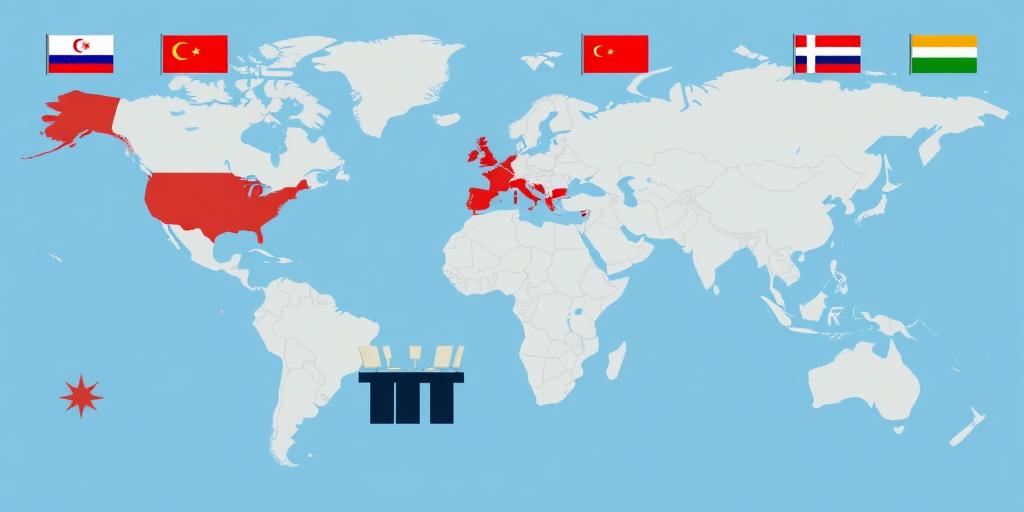The Role of International Relations in Border Conflicts
Border conflicts are a persistent feature of the international landscape, often rooted in historical grievances, territorial disputes, and competition for resources. While these conflicts may manifest as localized events, they are deeply intertwined with the broader dynamics of international relations (IR). Understanding the role of IR in border conflicts is crucial for conflict resolution and the maintenance of regional and global stability.
Understanding Border Conflicts
Border conflicts arise for various reasons:
- Historical claims: Disputes over territory based on past treaties, conquests, or settlements.
- Ethnic and cultural ties: Borders that divide ethnic or cultural groups can lead to tensions and demands for unification or autonomy.
- Economic interests: Competition for natural resources (water, minerals, oil) located along or near borders can escalate into conflicts.
- Geopolitical considerations: Strategic locations along borders can be vital for military or political influence, leading to disputes.
The Role of International Relations
International relations play a multifaceted role in shaping and influencing border conflicts:
Diplomacy and Negotiation
Diplomacy is a primary tool in managing border disputes. Through negotiation, mediation, and arbitration, states can address their differences peacefully. International organizations like the United Nations (UN) and regional bodies often facilitate these processes by providing platforms for dialogue and offering mediation services. Successful diplomacy can lead to the demarcation of clear and mutually agreed-upon borders, reducing the potential for conflict.
International Law and Norms
International law provides a framework for resolving border disputes. Principles such as uti possidetis juris (the recognition of existing administrative boundaries at the time of independence) and the prohibition of the use of force guide the peaceful settlement of territorial claims. The International Court of Justice (ICJ) offers a legal avenue for states to adjudicate border disputes, providing binding rulings based on international law.
Power Dynamics and Alliances
The balance of power among states significantly influences border conflicts. Powerful states may exert influence over weaker neighbors, seeking to redraw borders or control strategic territories. Alliances and security agreements can either deter aggression or exacerbate tensions, depending on their nature and objectives. Understanding the power dynamics in a region is essential for predicting the trajectory of border conflicts.
Intervention and Peacekeeping
International intervention, whether through peacekeeping operations, sanctions, or military action, can play a critical role in managing border conflicts. UN peacekeeping missions are often deployed to monitor borders, prevent cross-border violence, and support the implementation of peace agreements. However, intervention can also be controversial, particularly when it is perceived as infringing upon state sovereignty or serving the interests of external powers.
Economic Interdependence
Economic relations can both mitigate and exacerbate border conflicts. On one hand, trade and investment can create interdependence and reduce the incentives for conflict. On the other hand, competition for resources or unequal economic development along borders can fuel tensions. Promoting economic cooperation and equitable distribution of resources can contribute to peaceful relations.
Case Studies
The India-Pakistan Border
The India-Pakistan border is one of the most heavily militarized and contested borders in the world. Rooted in the partition of British India in 1947, the dispute over Kashmir has led to multiple wars and ongoing tensions. International mediation efforts have had limited success, and the border remains a flashpoint for regional instability.
The South China Sea
The South China Sea is a complex web of overlapping territorial claims involving China, Vietnam, the Philippines, Malaysia, and Brunei. These disputes are driven by economic interests (fishing rights, oil and gas reserves) and geopolitical considerations (control of strategic sea lanes). International law, particularly the United Nations Convention on the Law of the Sea (UNCLOS), provides a framework for resolving these disputes, but its interpretation and enforcement remain contentious.
Conclusion
International relations play a pivotal role in border conflicts, shaping their causes, dynamics, and potential resolutions. Diplomacy, international law, power dynamics, intervention, and economic relations all influence the management of border disputes. Understanding these factors is essential for policymakers, scholars, and practitioners seeking to promote peace and stability in a world where border conflicts remain a persistent challenge.









